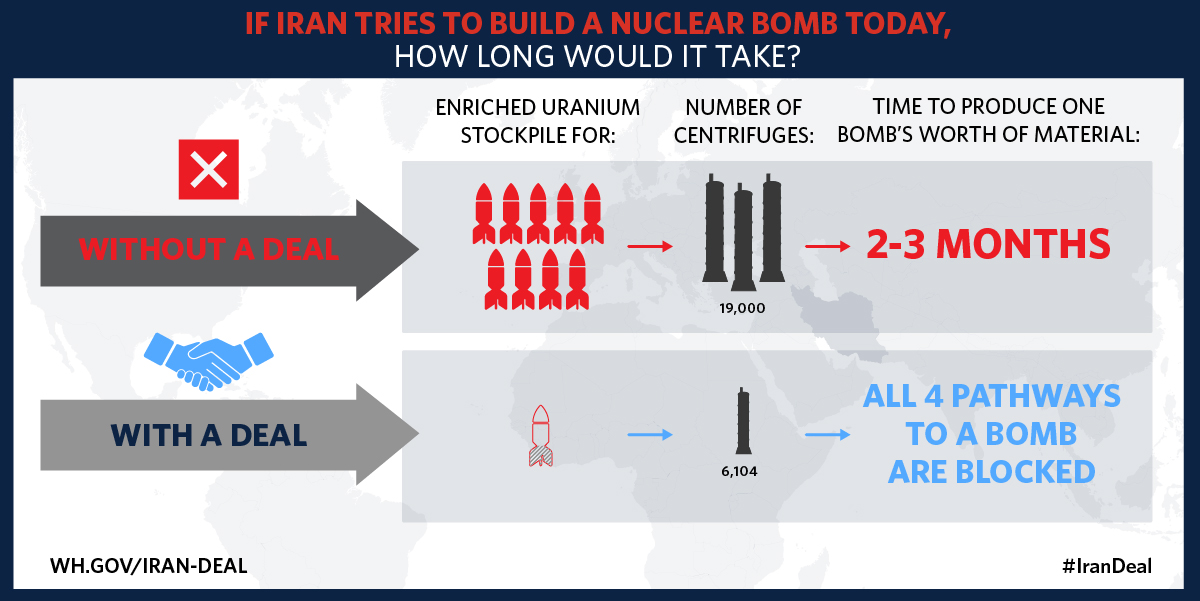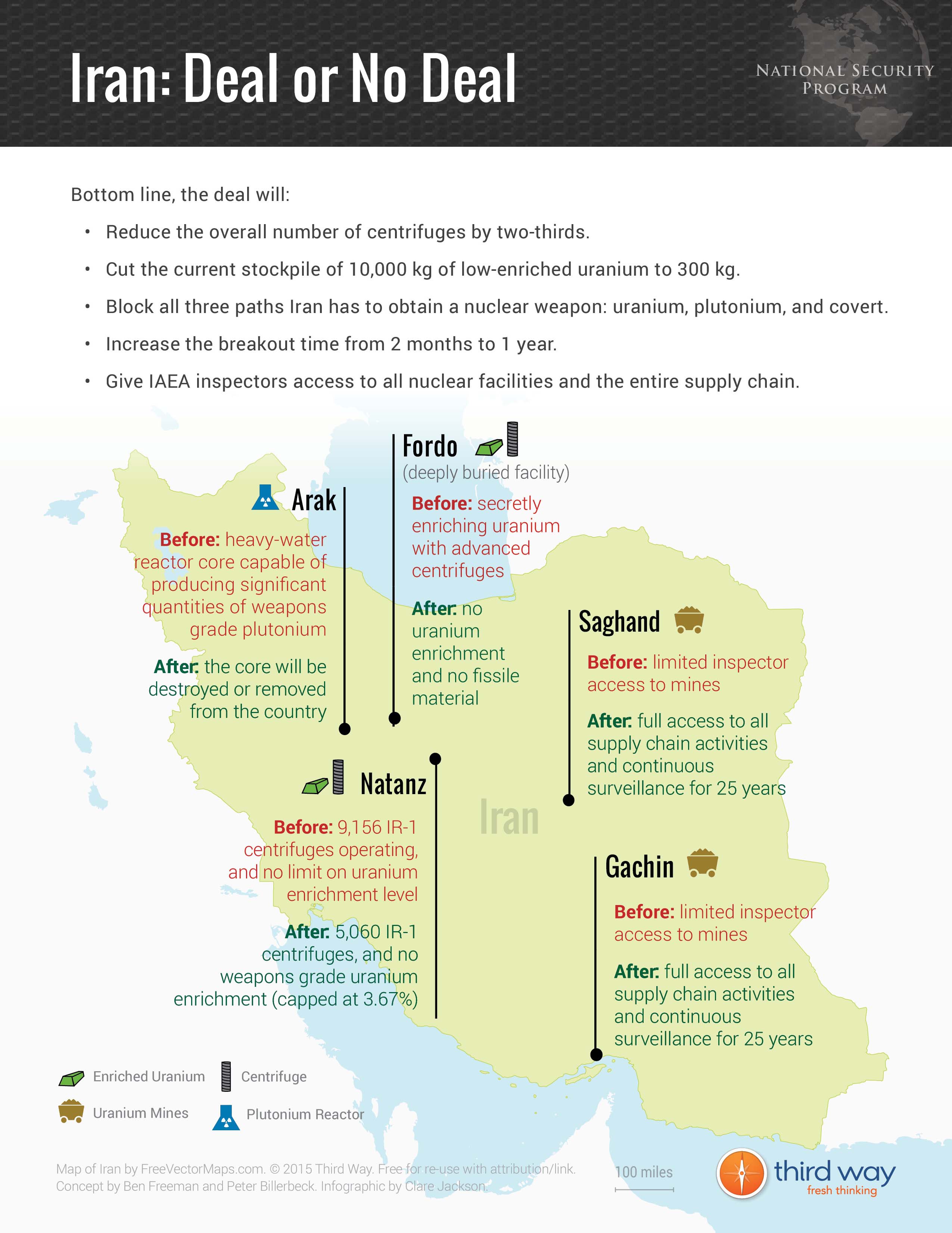The Iranian deal concluded in Vienna on Tuesday 14 July 2015 has become fait accompli. In order to live with its results over the coming years, to prevent serious implications, extreme intelligence has to be implemented in order to prevent Iranian deception in its covert nuclear program. Israel has legitimate concerns and President Obama himself has recognized this, even while asserting that a better alternative to the Joint Comprehensive Plan of Action (JCPA) was not proposed by Netanyahu, or, for that matter by anyone else.
Therefore issues of substance and form assume critical importance. Although Israel is confronted with new challenges, resulting from this deal, an in-depth study of the 159 pages of the Vienna agreement reveal that, although acute dangers will certainly exist over the years, there are also important issues of substance included, which, if monitored carefully by expert elements, can offer a safer outlook, than existed so far by the conduct of this hostile Islamic state.
However, while Netanyahu deserves credit for stubbornly putting the nuclear issue on the global agenda, significantly contributing to the intensified sanctions on Iran, the prime minister erred dangerously, when he did not hesitate to hook up with the Republican Party in its campaign against U.S. President Barack Obama and condemn the entire deal. There were even reports in the Israeli media, comparing the Vienna agreement with the notorious pre-WW2 Munich accord, even some going so far as warning that the Jewish State was facing toward a new Holocaust! Such attitude is not only counterproductive, in a situation created with world-wide consent, but under realistic circumstances, complete political nonsense. It will only foster Israel’s diplomatic isolation that already exists, resulting by Netanyahu’s irresponsible conduct, primarily deteriorating US- Israel relations.
The crude assault on U.S. President Barack Obama, who is accused, by Israeli right-wing politicians of “selling out Israel,” can certainly be chalked up by Tehran leaders as an important achievement, only further contributing to the loss of Israel’s staunch strategic ally.
The State of Israel, which sees itself, justifiably, as the primary target of the Iranian threat, is entitled to view the agreement with suspicion and distrust. Just as it exposed an important part of Iran’s nuclear program, it must continue to monitor Iran’s behavior and warn of any violation of the deal. Although Israel was not a partner to the negotiations, it should not give up the role of watchdog that it has taken upon itself. At the same time however, it must give a fair chance to Iran and the world powers to try and inaugurate a new path in their mutual relations.
The world’s leading countries reached a long negotiated deal with Iran on Tuesday July 14. It will likely lead eventually to the Islamic Republic becoming a nuclear power. However, Israel can live with a nuclear Iran, because it is by far the strongest country in the region. The Tehran leaders realize that trying to implement their verbal threats against the Jewish State would lead to sheer suicide.
Former prime minister and IDF chief of staff, Ehud Barak arrived at a television studio on Tuesday evening to provide the Israelis with some sobriety.

It was like a breath of fresh air on a humid day.“The agreement gives legitimacy to Iran to become a nuclear threshold state,” Barak said. “It allows [the Iranians] to subsidize terror and removes them from the noose of sanctions. It is fair to say that it will allow Iran to follow North Korea to become a nuclear power.” However, while he said it was legitimate for Israeli politicians to go to the US to explain why the deal was problematic for Israel, he cautioned against interfering in American politics and said positive relations with the White House must be restored. He added that there was room to take advantage of the nuclear deal to set a new regional security order.
“We need to define, together with America, what a smoking gun is, and what is an Iranian violation,” he said. “You don’t need to be a security expert to understand that the deal changes the security situation. You need the US to reevaluate the situation and maintain and develop the military option.”
Iran already has the know-how and infrastructure to manufacture nuclear bombs, which on paper, will grow at a rate of a few bombs every year. Over the last few years Israel has attempted to delay or revert this ability through both covert and overt means, but to little effect. Even the military option would not change the current situation completely; it would only delay the Iranian nuclear program by two years at most, military experts claim.
So what has changed? The agreement that was signed between the powers and Iran delays the Iranian nuclear program by 15 years at least, and maybe more. Accord ing to the agreement, Iran’s current facilities will be forced to change: the underground facility at Fordow will not split uranium at all; the reactor at Arak, which is the most feared due to it’s ability to manufacture a plutonium bomb which can be put onto a missile, will be redesigned so that it becomes impossible to enrich military grade plutonium there. The deal was written by leading nuclear experts and blocks every path known to build a nuclear bomb. The Iranians may be celebrating, but they have in fact swallowed a very bitter pill. All it remains is to constantly monitor the Iranian scene to prevent any deviation from the agreement over the coming years. Israeli intelligence cooperating with the western powers and primarily the US is of primary importance and this requires immediate restoring the excellent mutual relations which existed at the highest level without delay.
In analyzing all the details of the agreement it can be seen that Iran has committed not to attain nuclear weapons, by any path available to them, and cannot enrich uranium above the lowest level or 3.67%. Iran must also ship abroad all of its current uranium stockpiles above 300 kilograms, which is not enough to manufacture even half of one weapon. Additionally, the number of uranium enrichment centrifuges will drop to 5,060 (at Natanz), all of which will be of the older and less efficient type. These are vital points which cannot be overlooked.
The fact that Israel failed to thwart the agreement and even failed to influence its content is a total failure. But Netanyahu is immune to failures: In his extreme political world, there are only two options – either he wins, or he is a victim. He won the elections; but in the agreement with Iran he is a victim. Instead of giving the Israelis a realistic account of what happened, he is informing them that a new holocaust is on the way. What will the Israelis do with the portions of intimidation he is making them sniff? Netanyahu is acting like a person convinced that this is a battle over Israel’s actual existence. He is wrong: Israel will continue to exist. Israel is strong and very far from facing another Holocaust.
Key points of the deal (for full document click here):
- Iran will reduce its uranium enrichment capacity by two-thirds. This will involve stopping the use of its underground facility at Fordow for enriching uranium.
- Iran’s stockpile of low enriched uranium will be reduced by 95%, to 300 kg. This will be done either by diluting the enriched uranium or shipping it out of the country.
- The core of the heavy water reactor in Arak will be removed, and it will be redesigned so that it will not produce significant amounts of plutonium.
- Iran will allow UN inspectors to enter sites, including military sites, when the inspectors have grounds to believe undeclared nuclear activity is being carried out there. It can object but a multinational commission can override any objections by majority vote. After that, Iran will have three days to comply. Inspectors will only come from countries with diplomatic relations with Iran – therefore, they will not include Americans.
- Once the International Atomic Energy Agency (IAEA) has verified that Iran has taken steps to scale back its program, UN, US and EU sanctions on Iran will be lifted.
- Restrictions on trade in conventional weapons will last another five years.
- Restrictions on trade in ballistic missile technology will last another eight years.










